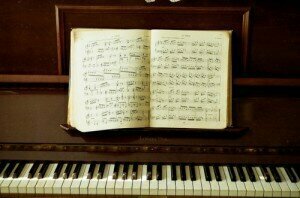 One of the greatest joys (and frustrations!) of being a pianist is the vast and myriad repertoire available for our instrument, from early Baroque wonders to brand-new contemporary fancies. One could spend a lifetime learning only the works of Chopin or Beethoven if one so desired!
One of the greatest joys (and frustrations!) of being a pianist is the vast and myriad repertoire available for our instrument, from early Baroque wonders to brand-new contemporary fancies. One could spend a lifetime learning only the works of Chopin or Beethoven if one so desired!
Many of us had our musical tastes shaped in our childhood, through music lessons and perhaps by parents who took us to concerts. We carry these tastes with us in adulthood, while making discoveries along the way, and as we mature, so our tastes change. For example, as a teenager studying for Grade 8 piano, I was made to learn a Chopin Nocturne. At the time I disliked it intensely, preferring the mannered intricacies of Bach and the wit and humour of Beethoven, but when I returned to the piano as an adult, after nearly 20 years away from the keyboard, I fell in love with Chopin’s piano music, maturity and experience allowing me to fully appreciate his genius.
With so much music available for the pianist, choosing new repertoire can be confusing. As a teacher, it’s always a pleasure to help students discover new repertoire, and I try to help my students select repertoire that will ‘suit’ them, while also offering them useful technical and musical challenges.
Adult pianists have many avenues for new discoveries. A teacher can offer recommendations, but it is often more fun to explore new repertoire independently. Never feel you ‘have to’ learn something – unless there is a valid musical/technical reason to pick up certain pieces (a teacher might recommend a particular Étude to practice an aspect of technique), it is far better to select music which you know you will enjoy playing.
How to discover new repertoire:
Go to concerts: for me, this is the best introduction to new music. You hear it live, which gives a wonderful sense of the music. And don’t think that just because the pros are playing it, it must be impossible. Many concert pieces are not nearly as complicated as they may sound. Make a note of the pieces you like in the programme so that you can look them up afterwards.
If you loved that, you’ll like this…. I call this ‘lateral repertoire selection’ and this method has introduced me to some wonderful new repertoire. For example, if you like Chopin’s piano music, try fellow countryman Karol Szymanowski. His Mazurkas hark back to Chopin’s but contain interesting harmonic shifts redolent of Ravel and Debussy (who were both influential on Szymanowski), and his Études are really beautiful. Debussy is a good stepping stone to Messiaen. His later piano music (writing during and after the Second World War) is dauntingly discordant and difficult, but his Preludes, written in the 1920s, relate to Debussy’s with their colourful harmonies and timbres, and atmospheric titles.
Syzmanowski: Etude in B-flat minor, Op 4 no. 3
Listen to the radio. Tune into a classical music station for a wide variety of music. Remember, many orchestral works have piano transcriptions. Most stations publish a playlist on their websites so you can check what you heard and liked. Internet music streaming services such as Spotify and IDAGIO are also great sources of inspiration as recommendations are flagged up based on what you’re listening. YouTube is another useful resource, while platforms like MediciTV or World Concert Hall stream live concerts from around the world.
Messiaen: Prelude: La Colombe
Go to a music shop. Browse the racks of sheet music and pick out things which interest you. Sometimes the cover of a manuscript is enough to pique the interest.
Recommendations from teachers and friends are all useful too, as are reviews of music in magazines and journals.
There is plenty of copyright-free music available on the internet, which can be downloaded and printed out, or saved on a tablet device. Always remain open to new ideas and inspirations, and you will enjoy a wealth of fabulous piano music.
More Opinion
-
 The Predictability of the 2025 Van Cliburn Competition Was Hong Kong's Aristo Sham the 'predictable winner'?
The Predictability of the 2025 Van Cliburn Competition Was Hong Kong's Aristo Sham the 'predictable winner'? -
 The Unpredictability of the 2025 Queen Elizabeth Competition Discover why these results have sparked debate among classical music fans
The Unpredictability of the 2025 Queen Elizabeth Competition Discover why these results have sparked debate among classical music fans -
 What Makes a Good Concert? A memorable concert requires four essential elements. Find out here
What Makes a Good Concert? A memorable concert requires four essential elements. Find out here -
 The Musician’s ‘Non-Negotiables’ Want to level up your music practice? Take inspiration from 'The Bear'
The Musician’s ‘Non-Negotiables’ Want to level up your music practice? Take inspiration from 'The Bear'




